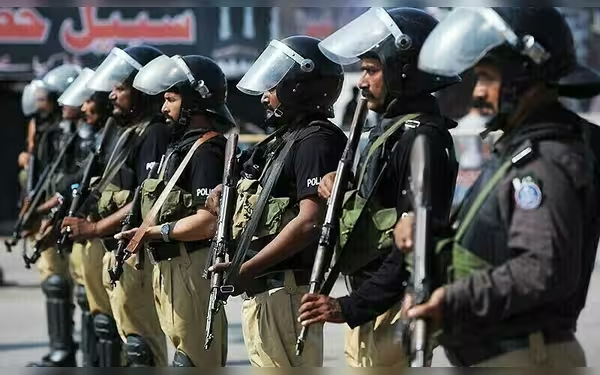Sunday, November 24, 2024 02:59 PM
PTI Protests Against IHC Order Amid Section 144 in Punjab
- PTI plans protest on November 24 despite court ruling.
- Imran Khan calls supporters to join nationwide demonstrations.
- Section 144 enforced in Punjab raises concerns over civil rights.
 Image Credits: dawn.com
Image Credits: dawn.comPTI plans a protest on November 24 despite IHC's ruling and Section 144 enforcement in Punjab, raising concerns over civil rights.
The political landscape in Pakistan is once again heating up as the Pakistan Tehreek-e-Insaf (PTI) party, led by its founder and former Prime Minister Imran Khan, prepares for a significant protest scheduled for November 24. This planned demonstration comes in the face of multiple challenges, including a ban on gatherings imposed in both Islamabad and Punjab, as well as a court ruling that has deemed the protest "unlawful." Despite these obstacles, PTI leaders have expressed their determination to proceed with their power show, signaling a strong commitment to their cause.
Imran Khan has made a "final call" to his supporters, urging them to join in nationwide protests. He has characterized the current political situation as a result of a "stolen mandate," referring to the recent elections and the subsequent political developments that have left many of his supporters feeling disenfranchised. Khan's rhetoric also includes strong criticism of what he describes as unjust arrests of individuals who oppose the current regime, as well as the passage of the 26th amendment, which he claims has bolstered a "dictatorial regime." This language resonates deeply with his base, who view these issues as fundamental threats to democracy in Pakistan.
The enforcement of Section 144 in Punjab, which prohibits public gatherings, adds another layer of complexity to the situation. This legal measure is often used by authorities to maintain public order, especially during times of political unrest. However, it also raises questions about the right to peaceful assembly and the extent to which the government can limit citizens' freedoms in the name of security. PTI's insistence on moving forward with the protest, despite these restrictions, highlights the party's resolve and the growing tensions between the government and opposition parties.
As the date approaches, many are left wondering what the implications of this protest will be for Pakistan's political future. Will it lead to further unrest, or could it serve as a catalyst for dialogue and change? The outcome remains uncertain, but one thing is clear: the political divide in Pakistan is widening, and the voices of dissent are becoming increasingly vocal. For citizens, this situation serves as a reminder of the importance of civic engagement and the need to stay informed about the political processes that shape their lives.
The upcoming PTI protest on November 24 is not just a demonstration of political will; it is a reflection of the broader struggles within Pakistan's democracy. As citizens prepare to take to the streets, the eyes of the nation will be watching closely, hoping for a peaceful expression of dissent that respects the rights of all individuals involved. The events of that day could very well shape the future of political discourse in Pakistan, making it essential for everyone to stay engaged and informed.













